Physics of advanced materials for energy processing
Physics of Advanced Materials for Energy Processing (PAMEP) is a speciality of Physics studies.
The program will be conducted solely in the English language with emphasis on preparing its students for their future work as scientists or in science-related areas. The subject matter of the program is closely tied to physics of new materials which currently have been applied or have its potential application in energy generation, conversion, storage and saving. The goal of this program is to equip a student with technical expertise necessary for an academic career (postgraduate degree studies) or a career in private sector corporations which strictly rely on detailed knowledge of scientific research (for instance, companies involved in research, producing or servicing advanced measuring tools and companies interacting with both science and the industry).
PAMEP studies will be conducted at the Faculty of Physics in close cooperation with the NanoBioMedical Centre and the Faculty of Chemistry at Adam Mickiewicz University in Poznań, Poland.
PAMEP – innovative way to get M. Sc. degree in physics-related fields:
- Individual approach: a limited number of students, the possibility to select the majority of classes, a close contact with the supervisors.
- Research: with the beginning of the second semester, students will join active research groups and start working on genuine scientific projects.
- Publication: the master’s dissertations can be based on the publication co-authored by the students.
- External practises: the last semester is devoted to an internship in another academic institution or in a private sector.
The graduate program offers classes strictly connected to Physics (for instance, solid state physics, thermodynamics, magnetism) but also combined Physics and Chemistry (for instance: photovoltaics, solar energy, soft matter, crystallography), Physics and Biology (for instance: artificial photosynthesis, bionanostructures) and Physics and Nanomaterial Engineering (for instance: conducting nanostructures, one- and two-dimensional materials).
Our students get familiarized not only with theories but also with experimental methods of materials research. Additionally, they participate in specialized courses exploring the advanced modern material characterization techniques (for instance: electron and atomic force microscopy, optical spectroscopy, X-ray spectroscopy, Raman spectroscopy, NMR spectroscopy, time-resolved laser spectroscopy, neutron scattering), material fabrication (for instance, lithography, thin film deposition, chemical methods) and theoretical computation or computer simulation methods applied in materials physic.
Dla kogo studia na kierunku physics of advanced materials for energy processing
To propozycja dla kandydatów o ścisłych umysłach, zainteresowanych nowoczesnymi technologiami.
Warunkiem studiowania jest doskonała znajomość języka angielskiego.
Program kształcenia na kierunku physics of advanced materials for energy processing
Wybrane przedmioty w programie studiów:
- Signal and energy processing in nanopatterned materials
- Physical properties of 1D and 2D materials and their application in low energy consuming electronic devices
- Biophotovoltaic materials
- Thermodynamics of Electrolyte Solutions
- Down- and up-conversion in nanomaterials doped with lanthanide ions
- Magnetism, magnetic materials and magnetization dynamics
- Introduction to Computational Studies of Electronic Structure of Nanosystems
- Electric and thermoelectric transport at the nanoscale.
Przedmioty maturalne i zasady rekrutacji na kierunku physics of advanced materials for energy processing
Kandydaci muszą być absolwentami studiów pierwszego stopnia.
Odbywają rozmowę kwalifikacyjną.
Perspektywy pracy po kierunku physics of advanced materials for energy processing
Absolwenci studiów mogą pracować w:
- przedsiębiorstwach zajmujących się projektowaniem, wytwarzaniem, przetwarzaniem i zastosowaniem materiałów o specjalnych właściwościach dla potrzeb nowoczesnych dziedzin przemysłu,
- biurach projektowych,
- jednostkach kontroli jakości,
- laboratoriach,
- jednostkach naukowych,
- przemyśle przetwarzającym materiały i tworzywa o specjalnych własnościach użytkowych,
- przemyśle opartym na technologiach materiałów takich jak kompozyty, biomateriały, nanomateriały, materiały dla elektroniki, materiały dla ochrony przed korozją i dla ochrony środowiska.
Opinie o kierunku physics of advanced materials for energy processing
Kierunki pokrewne do kierunku physics of advanced materials for energy processing
Jakie uczelnie oferują kierunek physics of advanced materials for energy processing
W których miastach można studiować kierunek physics of advanced materials for energy processing
Komentarze (0)
Zobacz również
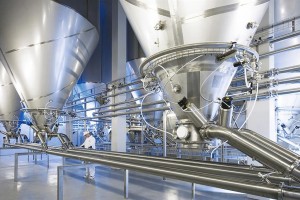
Studia inżynierskie w Białymstoku i woj. podlaskim
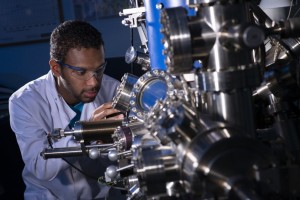
Studia inżynierskie w Gdańsku i woj. pomorskim
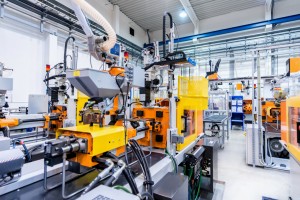
Studia inżynierskie w Katowicach i woj. śląskim
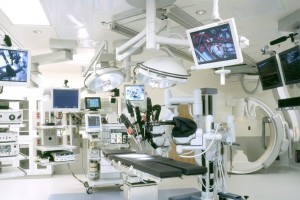
Studia inżynierskie w Kielcach i woj. świętokrzyskim

Studia inżynierskie w Krakowie i Małopolsce

Studia inżynierskie w Lublinie i woj. lubelskim

Studia inżynierskie w Olsztynie i woj. warmińsko-mazurskim

Studia inżynierskie w Opolu i woj. opolskim

Studia inżynierskie w Poznaniu i Wielkopolsce

Studia inżynierskie w Rzeszowie i woj. podkarpackim
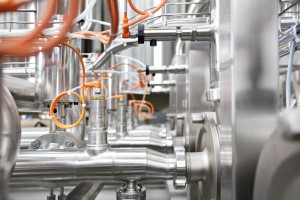
Studia inżynierskie w Szczecinie i woj. zachodniopomorskim

Studia inżynierskie w Toruniu, Bydgoszczy i woj. kujawsko-pomorskim

Studia inżynierskie w Warszawie i na Mazowszu

Studia inżynierskie w Zielonej Górze i woj. lubuskim

Studia inżynierskie w Łodzi i woj. łódzkim














































































































































